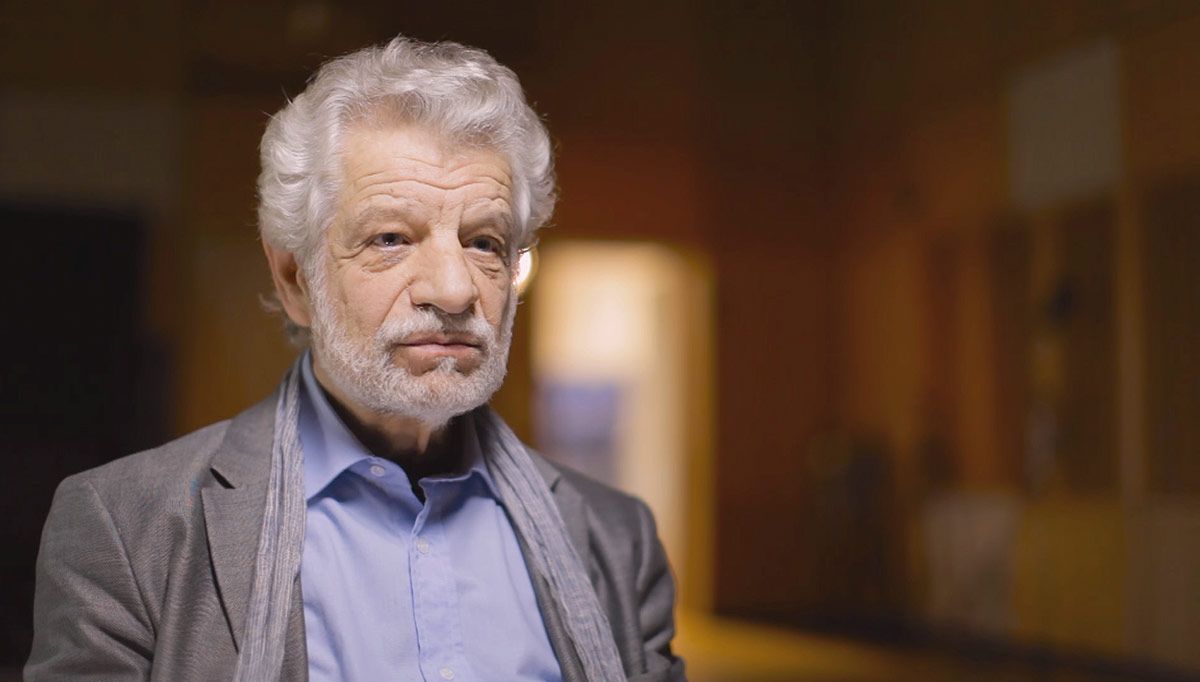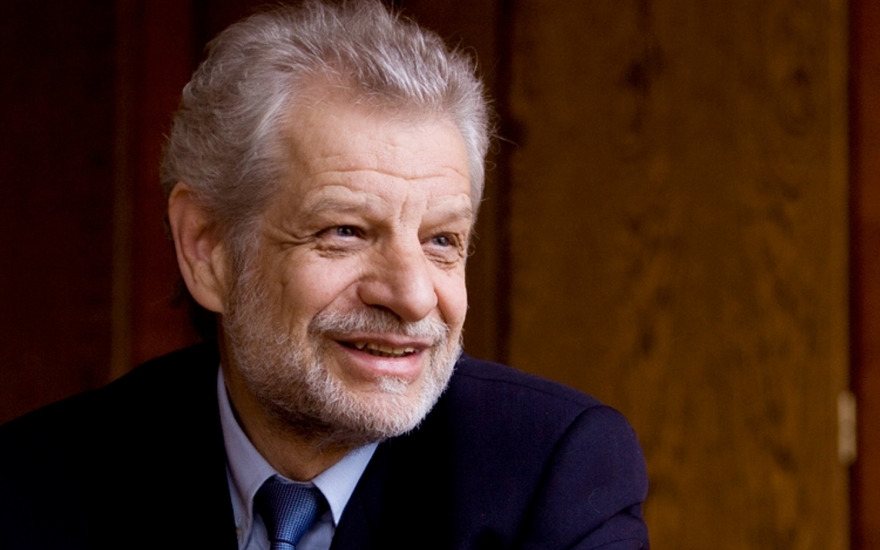Thomas Elsaesser (1943-2019)
“Only by turning itself into a form of ‘writing’ in the broadest possible sense, can film preserve itself as ‘a form of intelligence’, at least until the arrival of a new machine, in time for a different (wheat)field of dreams or battle.”1
“A film, an object we usually consider to be a self-sufficient work, possessing a narrative with its own mode of closure, is being created rather more like a land mine: to scatter on impact across as wide a topographical and semantic field as possible.”2
Thomas Elsaesser

On December 4, renowned cinema and media scholar Thomas Elsaesser has passed away at the age of 76. We've translated an excerpt from the instructive obituary in the Frankfurter Allgemeine Zeitung written by Vinzenz Hediger, Professor of Cinema Studies at the Goethe University in Frankfurt:
“Thomas Elsaesser is one of the founding figures of the discipline of film studies. After several years as a film critic in London, Elsaesser began his academic career at the University of East Anglia in Norwich, where he established film studies within the department of literary studies and often taught together with the then unknown German writer W.G. Sebald [who even acknowledged Elsaesser's influence on his writing and thinking]. In 1972, at the age of thirty, he published a long, groundbreaking essay on the American melodrama of the 1950s, ‘Tales of Sound and Fury’ [PDF], which lay the foundation for the academic consideration of the work of director Douglas Sirk, and melodrama as a field of research at the same time that film science was able to establish itself as a subject.” His famous plot description of Sirk’s Written on the Wind (1956) originates from this now classic essay: ‘Dorothy Malone wants Rock Hudson who wants Lauren Bacall who wants Robert Stack who just wants to die.’3 “His introduction to film theory, co-authored with Malte Hagener, first published in 2007 and now translated into all major languages, is a classic handbook in film studies around the globe. (...) At the beginning of the 1990s he moved to the University of Amsterdam, where he built around his professorship one of the largest film and media science institutes in Europe.” Elsaesser was also the long-time editor of the prestigious book series ‘Film Culture in Transition’ at Amsterdam University Press. In 2008 he took mandatory retirement as Emeritus Professor and had since been teaching as a Visiting Professor at Yale University (2006-2012) and Columbia University (since 2013). “Elsaesser's students shape film studies today in Great Britain, Germany, the Netherlands, the USA, but also in Turkey and India.”
Thomas Elsaesser published more than 200 essays and numerous books. He was a pathbreaking Weimar cinema scholar and a great chronicler and interpreter of the work of German filmmakers Rainer Werner Fassbinder (Fassbinder's Germany, 1996; available here in open access), Harun Farocki, Alexander Kluge, as well as early cinema before 1915, (New) Hollywood cinema and even cinephilia (his essay “Cinephilia: Or the Uses of Disenchantment” is available on his website). Elsaesser, a Berlin-born citizen of the world, also dedicated himself to the preservation of the work of his grandfather, the renowned architect Martin Elsaesser. In 2017, he made the documentary essay film The Sun Island (2017) about him, using home movies, photographs and letters from his family archive.
Only a couple of weeks ago, Elsaesser gave a talk in Chicago at the retirement celebration of another film studies giant, Tom Gunning, and delivered a keynote that opened a conference in Frankfurt on film theory in France and Europe after 1968. Afterwards he began a visiting professorship in Beijing, where he passed away completely unexpectedly last Wednesday.
You can find an overview of Thomas Elsaesser's work on his personal website. Many masterclasses and lectures are freely available online. An hour-long interview with Elsaesser is available on the website of The Society for Cinema and Media Studies (SCMS) in audio or transcript. An interview from last year can be read on the website of Amsterdam University Press, and another one from 2011 on the phenomenon of film festivals is available on the website of MUBI Notebook.
“In the 1950s, his grandmother’s passion for Hollywood cinema and his parents’ appreciation for European art cinema ignited the cinephilia that marks much of his later intellectual work. During his studies in comparative literature in the 1960s, Elsaesser ran a film club, started to write about film, and had much of his cinematic education in Henri Langlois’ famous Cinémathèque de Paris in the company of the famous auteurs of the French New Wave such as Jean-Luc Godard and François Truffaut.”
Patricia Pisters, one of Elsaesser's first PhD students and later colleague at the University of Amsterdam4
“Thomas Elsaesser's life charted the field of film studies, from its first days. A roving, infinitely curious thinker, he taught us how to conceive history & theory as braided forms, and about cinephilia, Fassbinder, Sirk, Farocki, archives and the classical.”
Elena Gorfinkel, critic and senior lecturer in film studies at King's College London

- 1Thomas Elsaesser, “Working at the margins: two or three things not known about Harun Farocki,” Monthly Film Bulletin, 597 (1983).
- 2Thomas Elsaesser, “Fantasy Island: Dream Logic as Production Logic,” in Thomas Elsaesser & Kay Hoffman (eds.), Cinema Futures: Cain, Abel or Cable? The Screen Arts in the Digital Age (Amsterdam: Amsterdam University Press, 1998), 156.
- 3Thomas Elsaesser, “Tales of Sound and Fury: Observations on the Family Melodrama,” Monogram, 4 (1972), 2-15.
- 4Patricia Pisters, “In Memoriam Thomas Elsaesser,” University of Amsterdam, 7 December 2019.

